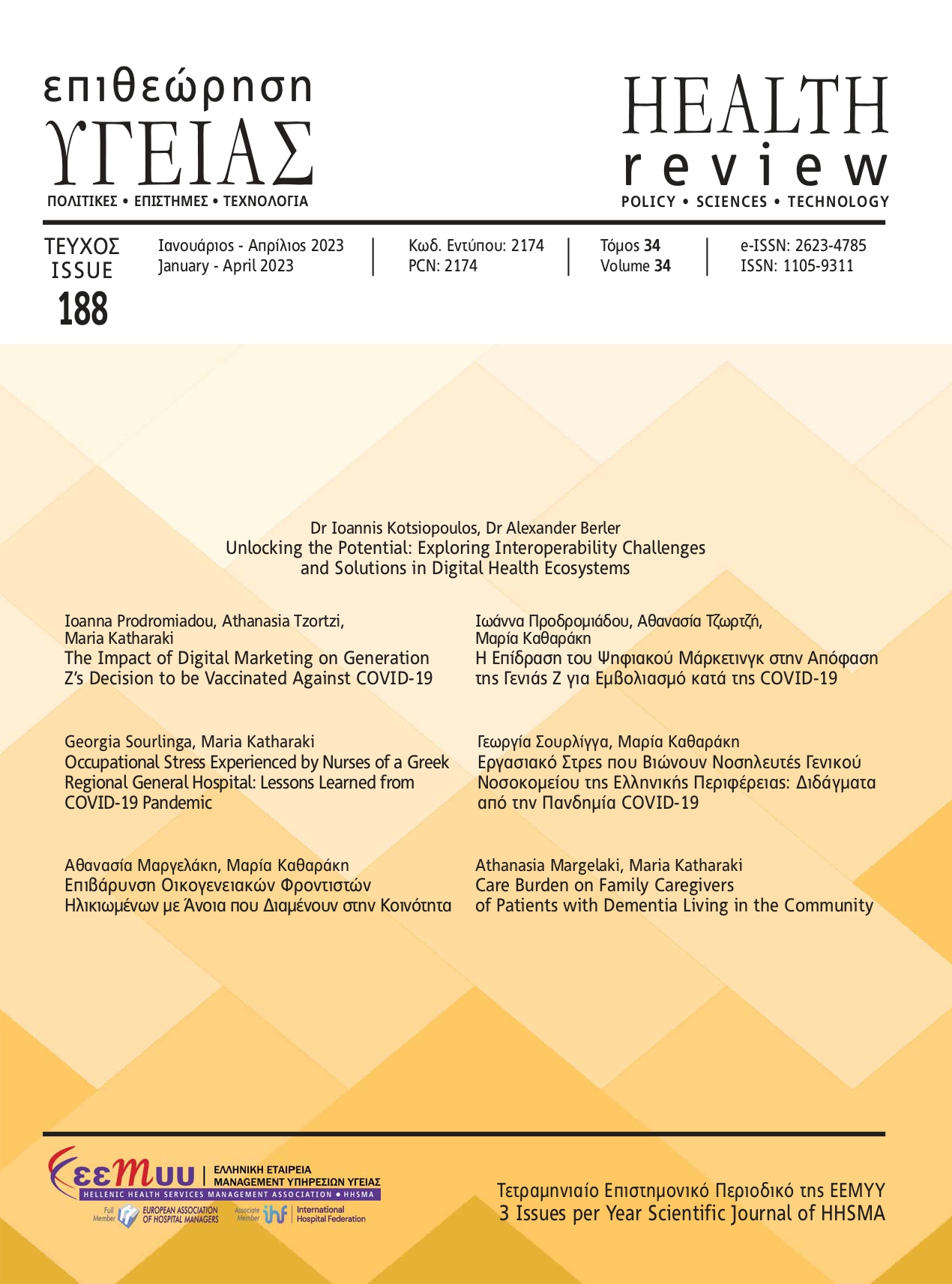Abstract
Occupational stress can affect nurses’ mental and physical health, while negatively affecting the quality of the services provided. This study investigates the occupational stress of the nurses during the second year of the COVID-19 pandemic, and the effect of socio-demographic characteristics and nurses’ perceptions of their job, organizational commitment, and health status on the aforementioned variable. 104 nurses of a Greek regional public General Hospital participated in the cross-sectional study, in the third semester of 2022.
The ASSET (A Shortened Stress Evaluation Tool) questionnaire was translated into Greek, and refined to the study aim. Cronbach’s alpha was 0.858. The independent samples t Test, ANOVA, and Bonferroni test were applied in hypothesis testing. Multiple general regression analysis was used to examine relationships between stress and other variables. The statistical significance threshold was set at 0.05. 89 women (85.6%) and 15 men (14.4%) participated in the study. The majority are aged 30-50 years (73.1%) and graduates of higher education (50.96%). 28.9% of the sample are employed in the Intensive Care Unit (ICU), Emergency Department, and COVID-19 ICU/Clinics. 63.5% of the nurses characterized their health condition as good and 10.6% as poor, while 43.7% said they felt less than 89% productive. Nurses’ work stress ranges from moderate to high levels. There is no statistically significant difference between work stress and socio-demographic parameters. Nurses’ perceptions of the Organization, expressed as commitment, dedication, and satisfaction related to the working environment, have a statistically significant effect on work stress.
Positive perceptions are related to lower levels of stress and better health and well-being. Perceived organizational support and organizational commitment predict the work stress the nurses’ experience. The current study indicates that participative leadership combined with organizational culture oriented to the development and continuous learning of the nursing staff can positively contribute to its empowerment, preparedness, and resilience in times of crisis.
